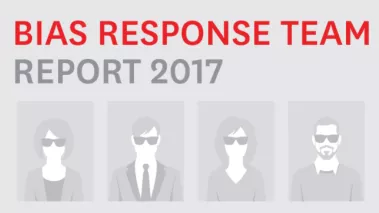Table of Contents
Central Michigan University Eliminates ‘Red Light’ Bias Incident Policy, Improves Speech Code Rating

This week, FIRE released our first-ever national survey of campus “Bias Response Teams” (BRTs), which produced several findings worth noting. Among other things, our BRT report identified more than 230 public and private institutions maintaining some type of bias response program during the course of 2016, affecting approximately 2.8 million students.
As the report discusses in great detail, these policies and programs present an ongoing threat to students’ and faculty members’ free speech rights. Not only do they often violate First Amendment rights when applied at public universities or abandon policy commitments to free speech when applied at private ones, they badly harm the campus climate for free expression by teaching students to report speech they subjectively find offensive, misguided, or “biased” to authorities.
Against this backdrop, we are pleased to report that one public university that previously maintained such a policy has heeded FIRE’s recommendations and eliminated it.
Central Michigan University (CMU) formerly maintained a “Bias Incident Response Team” policy that provided, in relevant part:
Bias incidents take many forms– words, signs, symbols, threats or actions –in electronic or real-time. They include intimidation, vandalism, destruction of property, harassment, and expressions of hate or hostility.
[...]
Anytime anyone in the CMU community feels belittled, disrespected, threatened, or unsafe because of who they are, the entire university community is diminished. That’s why it’s important to report all bias incidents – even those intended as jokes. If you have observed or experienced a bias incident, it should be reported as soon as possible.
This policy earned FIRE’s worst, “red light” rating for campus speech codes, and it’s not difficult to see why.
The policy explicitly prohibited any “expressions of hate or hostility,” including through “words, signs, [or] symbols,” endeavored to shield members of the CMU community from ever feeling “belittled” or “disrespected,” and even made clear that “jokes” were out of bounds. That’s a staggering amount of constitutionally protected expression banned at a public university fully bound by the First Amendment. (Indeed, the policy was one of the worst examples I could think of, when highlighting the issue of campus bias incident policies in The Huffington Post.)
Happily, the university has now eliminated that policy, following receipt of a letter from FIRE last year advising it to do just that.
Students and faculty members at CMU are better off for this decision, as they no longer have to fear being reported and potentially face disciplinary action under the policy’s broad terms. Students and professors likely struggled to understand the policy’s uncertain contours and the extent to which it regulated their speech, and many of them may have understandably self-censored rather than risk the possibility of disciplinary action. Ultimately, the policy’s elimination should remove the chilling effect it placed on campus discourse.
Moreover, CMU’s policy change now improves the school to an overall “yellow light” rating in FIRE’s Spotlight Speech Codes Database. Since the bias incident policy was the sole red light speech code CMU maintained, the university is now down to just two remaining yellow light policies. As FIRE said in our letter to CMU last year, we would be pleased to work with the university on revising those policies as well. By reforming those two speech codes, CMU has a very real opportunity to earn our highest, “green light” rating—something only 29 colleges and universities in the entire country can currently claim—as well as to be the first green light institution in the state of Michigan. We hope the university will take us up on our offer.
In the meantime, we commend CMU for eliminating its bias incident policy, and hope many other institutions will follow its example.
To find out if your college or university maintains a Bias Response Team—and to learn more about the impact these programs have on campus speech—click over to view FIRE’s full report.
Recent Articles
FIRE’s award-winning Newsdesk covers the free speech news you need to stay informed.

One day after FIRE lawsuit, Congress passes changes to filming permits in national parks

VICTORY: FIRE lawsuit leads California to halt law penalizing reporters, advocates, and victims who discuss publicly known information about sealed arrest records

O holy fight: New Hampshire Satanic Temple statue threatened by more than vandals
